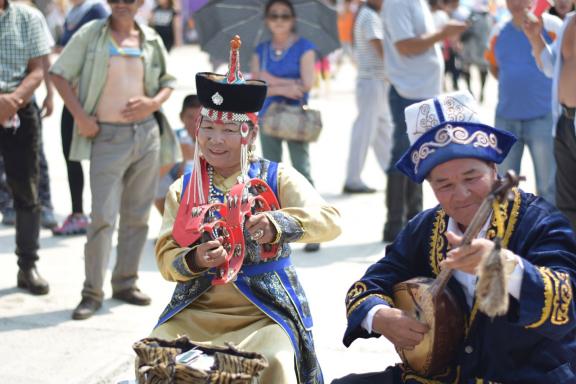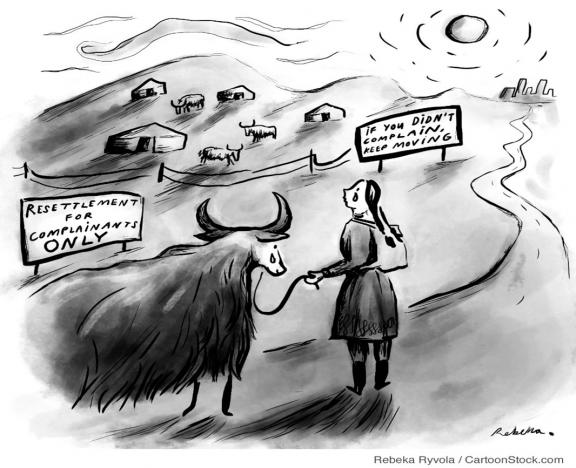From Ulaanbaatar to Almaty- Virtual Outreach in times of the Pandemic
The pandemic has posed great challenges for individuals and organisations around the globe. Like many others, we have turned to technology to maneuver through the difficulties presented by Covid-19. After the success of the IRM’s first virtual outreach event in the Pacific region, the IRM team has been committed to further exploring the virtual space to perform one of its core functions - outreach. An important thing to consider is to understand how grievance redress mechanisms of financial institutions can ensure project-affected communities know about access to remedy? The simple answer to this is through wide and effective outreach activities!
In the months of October and November, we teleported from our office in the Korean peninsula to the highlands of Mongolia and Central Asia, engaging in several interesting and insightful conversations with civil society organizations and other relevant stakeholders.

Enhancing capacities in Mongolia
With over 9 programmes and projects across different risk categories, Mongolia falls under the IRM’s list of priority countries for conducting outreach workshops. In the last week of October, the IRM conducted a virtual outreach workshop in collaboration with its partners OT Watch (Oyu Tolgoi Watch), MONES (Mongolian Women’s Fund) & DHF (The Development Horizons Foundation). The virtual workshop was well attended with over 65 participants joining in from different regions of Mongolia. The participants were from diverse backgrounds - from community groups to NGOs working on environment and human rights issues. Using simultaneous translation from English to Mongolian and vice versa helped ease the language barrier and led to a smoother flow of discussions.
The workshop aimed to provide information on the role of the IRM and its work as an accountability mechanism of the GCF. Additionally, the workshop enhanced the capacities of our stakeholders to engage with the IRM. The agenda of the event included presentations around the role of the GCF & the IRM, how to find the project information on the GCF website, how to access the IRM, and how to file a complaint, along with a session explaining problem-solving and compliance review services of the IRM. The use of interactive polls, quizzes around the content of the presentations, and allocating breakout rooms as a part of the presentations served as a good icebreaker. It helped participants to get comfortable and contribute to meaningful discussions in a group setting.
For the CSO experience sharing session, we invited two local speakers who have had experiences accessing the grievance redress mechanisms of other financial institutions. The experiences shared gave a realistic picture of accessing a grievance redress mechanism. One spoke of it as accessible and effective while the other highlighted the frustrating and cumbersome process of negotiations involved in getting a remedy. The questions and comments brought forward reiterated the importance of proper stakeholder consultation to be conducted by the GCF and their Accredited Entities (AEs) at all stages of the project cycle.

Creatively using Cartoons to bridge gaps of an effective communication
Our experiment of using cartoons to represent issues around grievances and redress was enthusiastically received by the participants of the Mongolia Outreach Event. The collaboration with professionals from Cartoon Collections, who sketched live cartoons based on the discussions, allowed for candid reflections and solicited interesting responses from the participants.
Fostering Accountability & Redress in Central Asia
The GCF is scaling up its portfolio across the Central Asian region which is a particularly vulnerable region because of its physical and social complexities. Participants from the Central Asian countries of Kazakhstan, Kyrgyzstan, Tajikistan, and Uzbekistan joined the IRM and its local partner – the Socio-Ecological Fund (SEF) - for a 1-day workshop. This event brought together civil society organisations and other stakeholders from across the region. Based on our previous experiences, we used pre-recorded presentations in Russian to reduce technical snags and allow sufficient time to engage in meaningful dialogue & discussions. In the context of the Central Asian countries, the participants stressed the importance of raising public awareness on the availability of redress mechanisms. Overall, it was a very enriching experience for the IRM and its stakeholders who encouraged the IRM to duplicate such workshops for ensuring adequate coverage across the region.
Positive Outcomes
Virtual outreach workshops can be challenging, especially because of the time constraints in a virtual set up along with the lack of personal connections with the participants. As more GCF projects go on to the implementation phase, the IRM must ensure adequate information is being disseminated on how communities can access remedies. This is especially critical for at-risk groups, including women, internally displaced persons (IDPs), indigenous and rural communities as their access to information is already limited. Through virtual workshops, the IRM has been able to make connections to a wider range of stakeholders at a minimal cost and with zero carbon emissions!
We at the IRM believe in opening doors to accountability and remedy. We continue working on our mandate, whether it is by innovating shared digital spaces or by organizing in-person events once the skies are safer to travel!